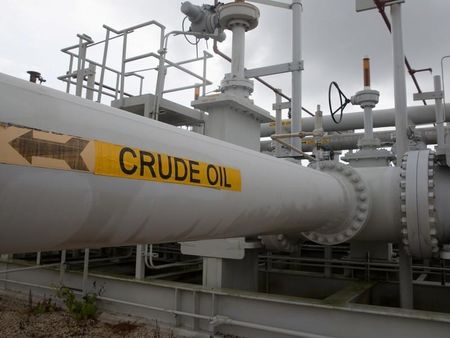
Investing.com– Oil prices were muted in Asian trade on Wednesday as fears of slowing economic growth offset any optimism over more supply cuts by the OPEC, while mixed U.S. inventory data for the week of Memorial Day also dented sentiment.
While oil prices had marked strong gains at the beginning of the week after Saudi Arabia pledged more production cuts, they later reversed all gains following a string of weak economic readings.
OPEC members apart from Saudi Arabia, particularly Russia, also appeared to be keeping production steady.
Still, the U.S. Energy Information Administration (EIA) said that oil markets will tighten in the second half of the year as supply cuts by Saudi Arabia and the Organization of Petroleum Exporting Countries (OPEC) go into effect, somewhat supporting prices. The agency expects Brent to trend just below $80 by end-2023.
Brent oil futures fell 0.2% to $76.14 a barrel, while West Texas Intermediate crude futures fell 0.1% to $71.62 a barrel by 22:09 ET (02:09 GMT). Both contracts settled around 0.6% lower on Tuesday after a volatile session.
Prices took mixed cues from industry data showing that U.S. crude inventories shrank more than expected in the prior week, as summer season demand heats up. But signs of an unexpected build in gasoline and distillate inventories raised questions over just how much fuel demand was improving, given that U.S. economic activity appeared to be cooling.
Concerns over sluggish demand also kept sentiment towards oil muted, following a string of weak readings from major economies this week. Data on Wednesday showed that Australia’s economy barely grew in the first quarter of 2023.
This came after data earlier this week showed that U.S. service sector growth slowed substantially in May, while German factory orders contracted through April.
Fears of a global recession, which could stymie oil demand this year, have kept oil prices depressed despite multiple efforts from the OPEC to reduce supply and improve prices.
Weak economic indicators from China have also largely undermined bets that a post-COVID rebound in the country will drive oil demand to record highs this year.
